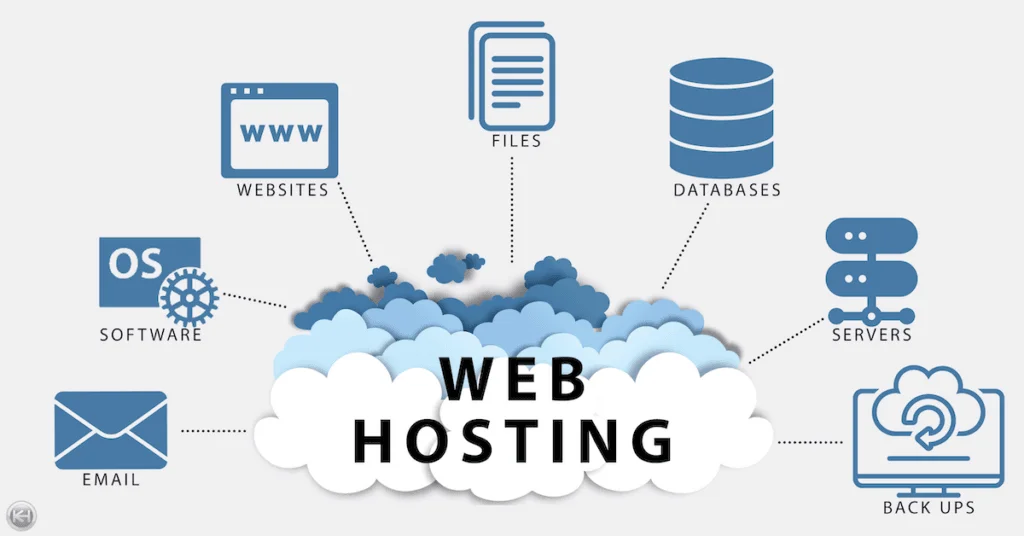Comparing Efficiency: Cheap Webhosting Companies vs. Premium Options
Comparing Efficiency: Cheap Webhosting Companies vs. Premium Options
Blog Article
Comprehending the Vital Parts of Webhosting for Your Online Visibility
In today's digital landscape, selecting the ideal internet organizing remedy is more than simply a technical decision-- it is a cornerstone of your on the internet identification. Uptime dependability, bandwidth capability, and robust protection attributes are important components that can make or damage your web site's success.
Relevance of Uptime Integrity
Uptime integrity is an essential variable in web hosting that straight influences the availability and credibility of your on the internet presence. It describes the quantity of time a server stays functional and readily available, affecting the individual's ability to access your web site without disturbance. A high uptime percent is essential as it ensures that your internet site is continually available, maintaining user trust fund and fulfillment. Downtime, nevertheless, can lead to potential profits loss, lessened consumer confidence, and harm to your brand's on the internet image.
This standard allows for just a couple of minutes of downtime every year, which is critical for companies that depend on continual on the internet operations. Picking a web host with a tested track record of high uptime integrity is crucial to accomplishing this standard.
In addition, uptime reliability is a factor to consider for internet search engine rankings, as search engines favor internet sites that offer constant customer experiences. Trustworthy uptime ensures that your website remains visible and accessible, sustaining both individual involvement and search engine optimization initiatives, ultimately improving your online existence's performance and reach.

Assessing Data Transfer Requirements
When intending for your online visibility, assessing data transfer needs is a vital step that can significantly affect the performance and scalability of your internet site. Data transfer describes the quantity of data that can be transferred between your website and its customers over a specific period. Insufficient transmission capacity can result in slow-moving loading times, lessened user experience, and possible profits loss, especially during height website traffic periods.
To precisely examine your data transfer requirements, consider aspects such as ordinary regular monthly visitors, web page dimension, and awaited growth. It is important to calculate your site's information transfer requires by increasing the typical page view dimension by the number of pages and site visitors watched per site visitor. Furthermore, represent multimedia elements such as high-resolution pictures and videos, which can substantially raise data usage.
Furthermore, seasonal variations and marketing projects may cause short-term spikes in traffic, demanding a flexible hosting plan that can suit such variations. Opt for a hosting supplier that provides scalable transmission capacity options, enabling adjustments as your website expands. By extensively examining these facets, you can guarantee your web site stays responsive and available, cultivating a positive individual experience and sustaining your online goals efficiently.
Examining Safety And Security Features

One more crucial security attribute is firewall software protection. A solid firewall software can obstruct destructive traffic and protect against unauthorized accessibility to your server. Additionally, hosts must give normal safety updates and patches to deal with vulnerabilities promptly. Automatic back-ups are additionally important, allowing you to recover your web site promptly in the occasion of a data violation or unintended data loss.
In addition, take into consideration holding companies that provide Distributed Rejection of Service (DDoS) security. This attribute aids prevent interruptions brought on by frustrating web traffic attacks. Breach detection and prevention systems (IDPS) are likewise important, as they monitor, discover, and react to potential hazards in real-time.

Customer Support Essentials
While durable protection procedures are important for securing your site, equally important is having accessibility to dependable client support. In the world of host, customer assistance serves as the backbone for preserving web site functionality and settling unpredicted problems. Reliable assistance ensures that technological troubles, which can occur any time, are managed without delay, reducing prospective downtime and loss of business.
Hosting providers must use multiple channels of interaction-- such as real-time chat, email, and phone support-- available 24/7 to cater to international customers. The high quality of assistance is likewise critical; reps must be experienced, trained, and capable of fixing problems efficiently.
Moreover, a thorough support group commonly includes a robust data base or assistance center. This resource gives customers with visite site detailed guides, FAQs, and tutorials, empowering them to address typical problems independently. This self-service choice not only improves check my site customer experience however also reduces the demand on straight support channels.
Picking the Right Hosting Kind
Picking the ideal holding type is a vital choice that can substantially influence your site's efficiency, scalability, and total success. The selection of holding directly influences load times, uptime integrity, and the capacity to deal with web traffic rises. For companies and individuals alike, understanding the subtleties of different hosting types is vital to straighten technological capabilities with functional demands.
Shared organizing, often the most cost-effective choice, includes multiple websites sharing the same server resources. Virtual Exclusive Web Server (VPS) organizing provides a middle ground, giving committed resources on a shared web server atmosphere, boosting performance and customization alternatives.
On the other hand, dedicated holding offers a whole server specifically for your web site, using optimum safety, control, and efficiency. This option is best fit for high-traffic web sites or those with certain compliance needs. Lastly, cloud organizing makes use of numerous web servers to guarantee scalability and redundancy, making it suitable for sites anticipating rising and fall traffic. By carefully assessing your internet site's needs, spending plan, and development estimates, you can make an informed choice on the most suitable holding kind.
Final Thought
In final thought, selecting a proper internet holding solution is essential for developing a robust online visibility. Selecting the suitable holding kind-- whether shared, VPS, committed, or cloud-- straight affects the web site's efficiency and scalability, thus establishing its long-lasting success.
Making certain durable safety features is extremely important when selecting an internet organizing provider, as it safeguards both your web site and its individuals. In the realm of internet organizing, client support serves as the foundation for keeping site functionality and solving unanticipated concerns.On the other hand, devoted organizing provides a whole web server exclusively for your site, providing optimum control, protection, and performance. Cloud hosting makes use of multiple servers to ensure scalability and redundancy, making it ideal for websites anticipating changing web traffic. Picking the appropriate holding kind-- whether shared, VPS, dedicated, or cloud-- directly affects the site's performance and scalability, thus determining its long-term success.
Report this page